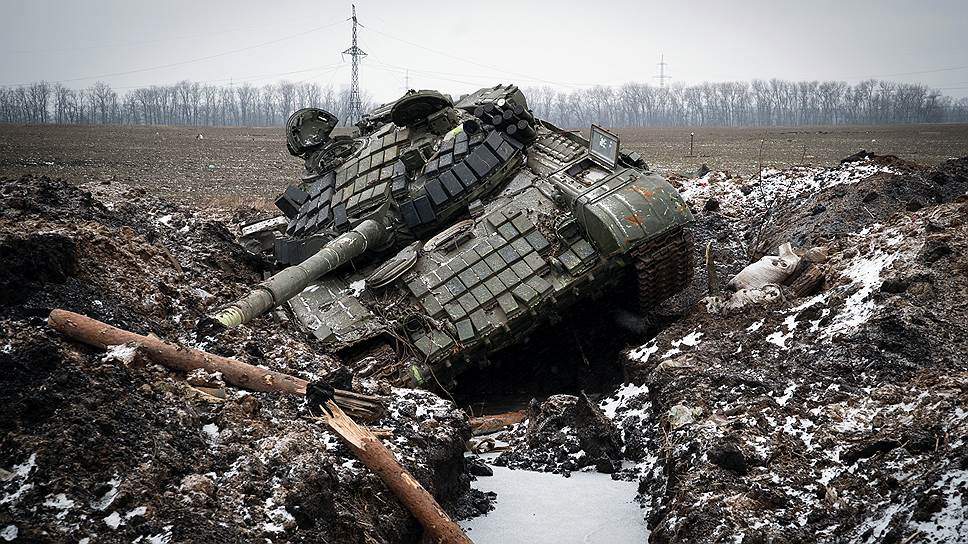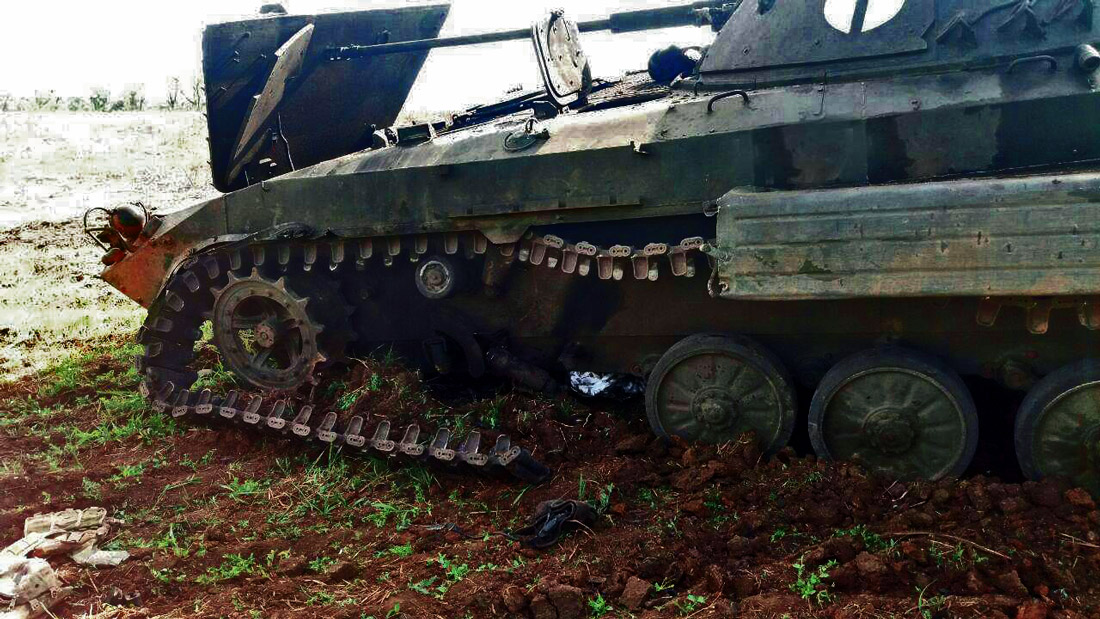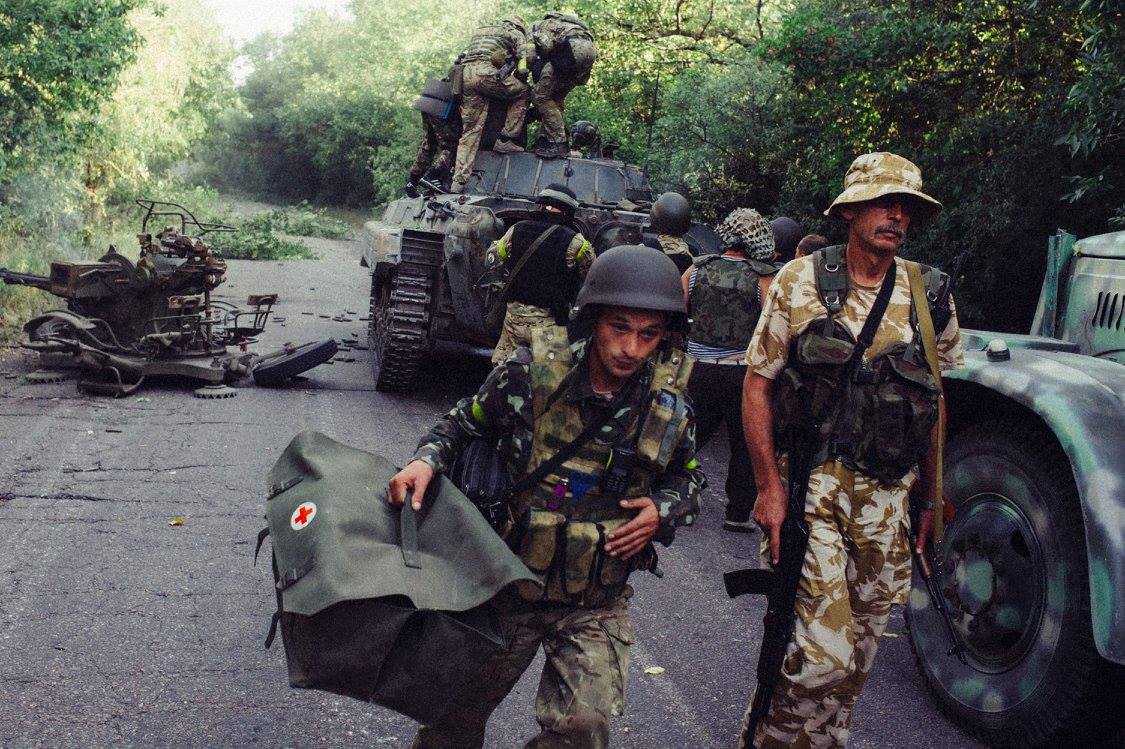Moscow commentators have noticed what few in the West have: Ukrainian President Petro Poroshenko’s decision to change the format of his country’s military operation against pro-Moscow forces strengthens Kyiv’s legal position at home and abroad and allows his government to escape from euphemisms and call things by their proper names.

At the start of this month, in a follow on to decisions made earlier, Poroshenko declared that the anti-terrorist operation in the east was completed and would be succeeded by a military operation of the unified forces of Ukraine against the Russian invasion.
This change in nomenclature doesn’t mean that the conflict will necessarily intensify on the ground, but it does mean, Russian observers say, that Kyiv’s legal position at home will be regularized and strengthened and that Ukrainian officials can now speak more openly about Russian aggression and the right of Ukraine to resist it.
The Ukrainian General Staff had been pushing for this change since the start of the year, arguing that it would allow for the formation of a more clearly defined command structure in the region and the systematic use of the Ukrainian army in the Donbas because it would clarify some legal issues and promote effectiveness more generally.
The re-definition of the conflict is fully in accord with the law on reintegration of the Donbas adopted in January. The chief goal of that law is “the liberation of the specific occupied territories and the restoration of the territorial integrity of Ukraine.” Russia is labelled “the aggressor” and the so-called "DNR," "LNR," and Crimea called “temporarily-occupied territories.”
What Poroshenko’s order does is resolve the problem of the use of the Ukrainian army on the country’s own territory. Under Ukraine’s constitution, the army cannot be used on the territory of the country except to repel an invasion and under conditions of war. But since the Crimean Anschluss in 2014, Kyiv has not declared a state of war or even martial law.
The January law and now Poroshenko’s decree allows Kyiv to “’call things by their proper names,’” supporters say. The latter means that the Ukrainian military is involved in “a defensive war’” intended to “’free territories occupied by Russia.’” Kyiv at the official level had not been clear about that in the past.
Following the Russian intervention, Kyiv responded on the basis of its 2003 law “On the Struggle with Terrorism” which allowed the authorities to use force to protect the population but gave primary responsibility for doing so to the country’s security service rather than to the military.
In June 2014, two months after the fighting in the Donbas began, the Verkhovna Rada amended that law to give the military a larger role; but the amended measure specified that the army could be used on Ukrainian territory only with the explicit approval of the Ukrainian parliament.
Poroshenko’s action, however, gives the military primary responsibility and puts a new staff to coordinate its activity in the Donbas under his direct authority, thus reducing the role of the parliament while elevating his own.
Moscow has reacted angrily. Foreign Minister Sergey Lavrov on May 3 told an Italian magazine that “the main aspect of the Ukrainian conflict is that Russia is not conducting a war with Ukraine and is not a participant in the conflict.” What Poroshenko’s action means is that now at the official level, Kyiv disputes both of those notions.
According to Ukrainian political analyst Vadym Karasev, this shift in Ukrainian policy is intended to freeze the conflict rather than to exacerbate it. “By calling Russia the aggressor, the Ukrainian side in fact is blocking the negotiating process,” something Kyiv has an interest in doing given the upcoming presidential and parliamentary elections.
Read More:
- No longer ATO, not yet a war. Ukraine adopts controversial "Donbas reintegration" bill
- Ukraine's Donbas-reintegration bill branding Russia "aggressor state" passes first reading
- Ukrainian OSINT sleuths release largest existing database of evidence of Russian aggression in Ukraine
- Search Eastern Ukraine statelets “effectively controlled” by Russia – PACE resolution
- Fears of radioactive disaster as Russian proxies plan to flood nuclear test site in Donbas
- Blacksmith, legionnaire, brother of fallen Cyborg: 3 soldiers of Donbas Battalion fighting close to home
- A student from Ukraine’s Donbas who lived through war





